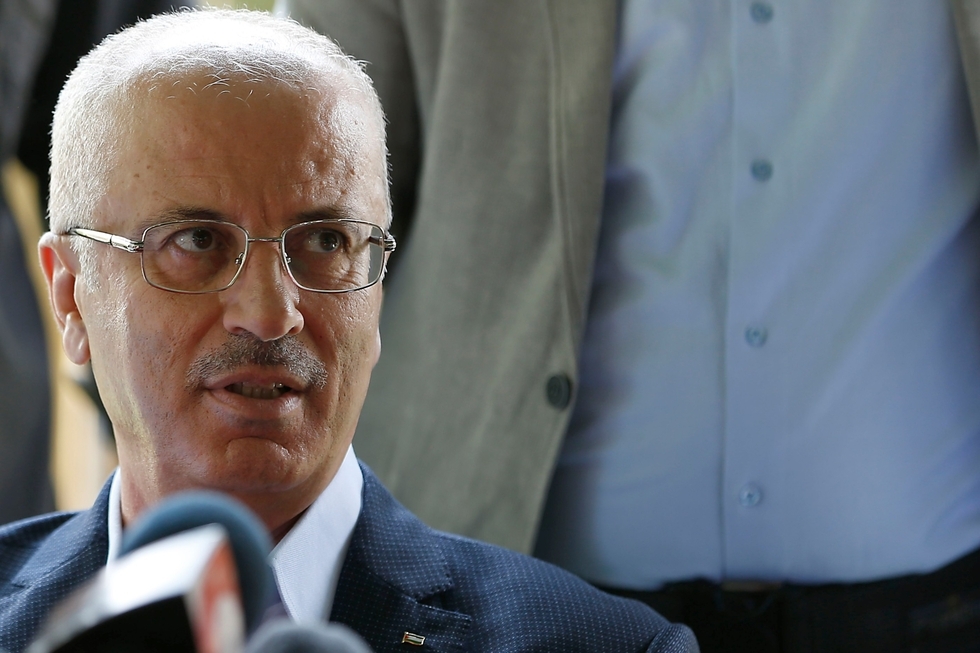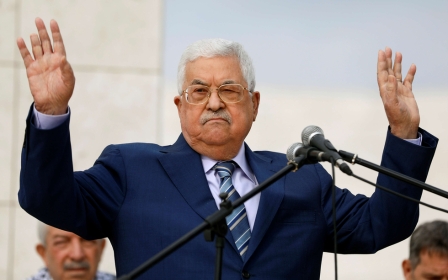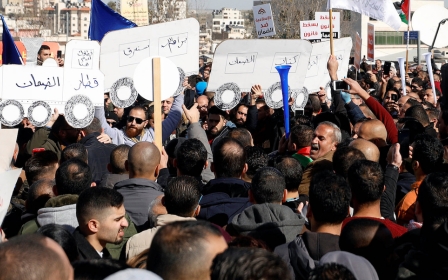Palestinian PM offers resignation amid stormy political climate

Palestinian Prime Minister Rami Hamdallah offered to resign on Monday, his spokesman said, amid efforts by President Mahmoud Abbas to form a new government.
Hamdallah has "put his government at the disposal of President Mahmoud Abbas," the prime minister's spokesman, Youssef al-Mahmoud, said in a statement, adding that he welcomed Abbas’s plans for a new government.
It came after the central committee of Abbas's Fatah movement recommended, late on Sunday, the formation of a new government that would comprise members of the Palestine Liberation Organisation (PLO).
Hamas, which has been the de facto ruling party in the besieged Gaza Strip since 2007, is not part of the PLO.
Fatah and Hamas have been engaged in a bitter feud since 2006, when Hamas won parliamentary elections whose results were not recognised by Fatah, historically the leading party of the Palestinian Authority.
An outright armed conflict in 2007 has led to a split in governance in the occupied Palestinian territories, with Abbas’s PA maintaining limited self rule in the occupied West Bank and Hamas in control in Gaza.
In June 2014 Hamdallah formed what was labelled a national unity government after a landmark reconciliation deal between Fatah and Hamas, but the deal quickly broke down amid an Israeli military crackdown that year that escalated into a devastating war in Gaza.
All attempts to mend the intra-Palestinian political split have since then failed.
Should Hamdallah's resignation be accepted by Abbas, it would formally spell the end of the long moribund national unity government the prime minister has been leading.
Last month, Abbas announced that the Palestinian Legislative Council (PLC), the Palestinian proto-state's parliament, was to be dissolved, which he said would pave the way for fresh polls and put an end to political deadlock.
But the bid is seen as part of attempts by Abbas to further isolate his political rival Hamas, amid the bitter decade-long split in Palestinian politics, and consolidate power over all of the PA’s organs.
Abbas was elected in 2005 for an initial four-year term, but no presidential elections have been held since then.
The PA has been heavily criticised by many Palestinians for its security coordination with Israel and perceived failure to bring about the establishment of an independent state. Protests have erupted in the West Bank in recent months over a new PA social security law denounced as opaque and susceptible to exploitation.
Regular polls by the Palestinian Centre for Policy and Survey Research indicate that some two-thirds of respondents want Abbas to resign.
A former president of al-Najah National University, Hamdallah has been prime minister of the PA since 2013. He resigned two weeks after his appointment in June that year - only to re-accept the position a month and a half later.
Last year, Hamdallah survived an apparent assassination attempt as an explosion hit his convoy as he entered the Gaza Strip to meet with Hamas officials and discuss reviving reconciliation talks.
Earlier this month it emerged that Hamdallah's car had been attacked by stone-throwing Israeli settlers in the occupied West Bank as he returned from a Christmas Day service in Bethlehem.
Middle East Eye propose une couverture et une analyse indépendantes et incomparables du Moyen-Orient, de l’Afrique du Nord et d’autres régions du monde. Pour en savoir plus sur la reprise de ce contenu et les frais qui s’appliquent, veuillez remplir ce formulaire [en anglais]. Pour en savoir plus sur MEE, cliquez ici [en anglais].




